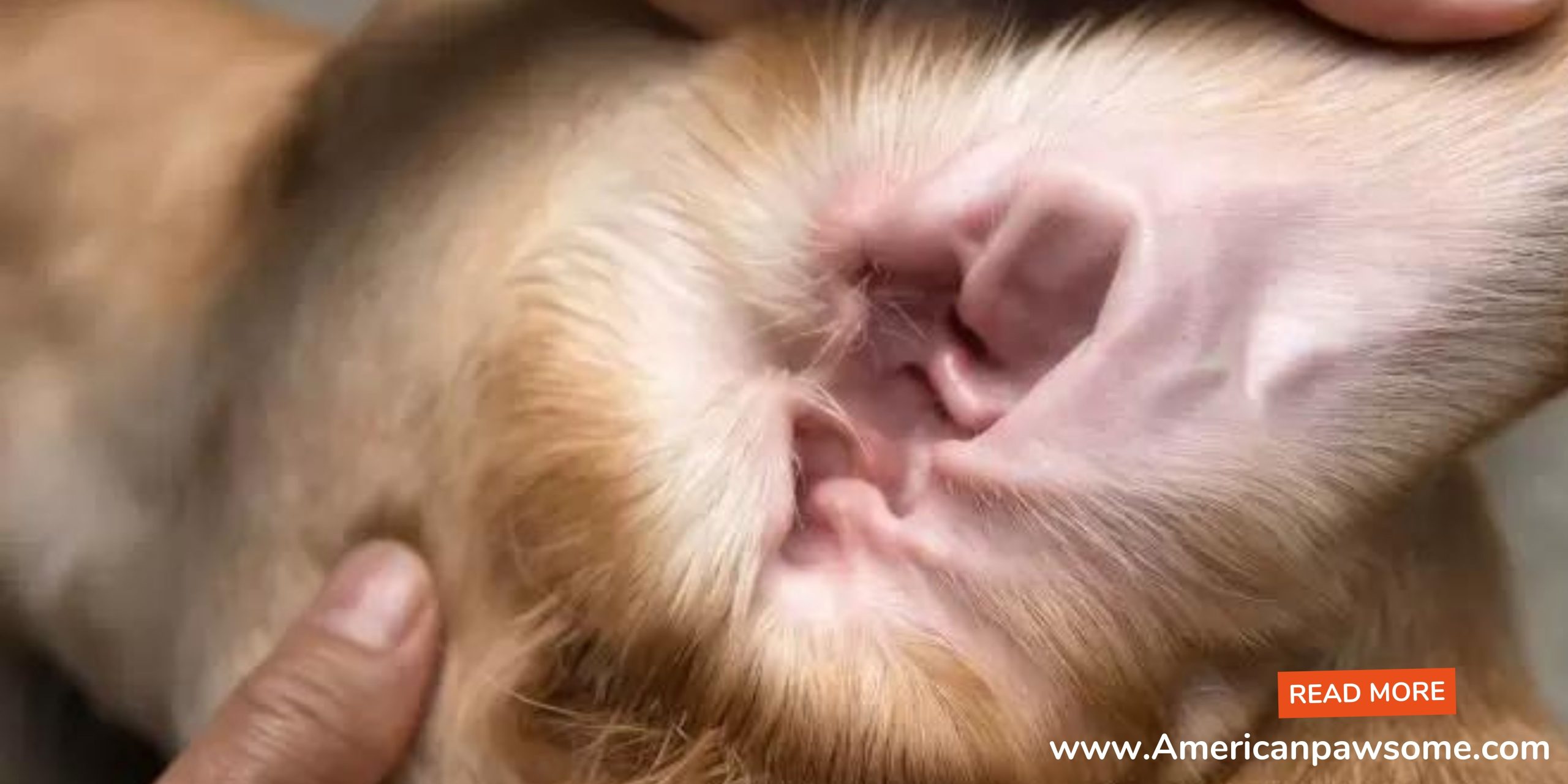Hello, fellow dog enthusiast! Have you ever caught your four-legged friend giving their ears a little too much attention? Or perhaps that cute head tilt is becoming a regular routine? Believe it or not, these behaviors could be hints that your furry companion might be dealing with an ear infection. As a responsible pet parent, it’s vital to catch these signs early and provide the necessary care. In this guide, we’ll delve into the signs and steps that can help you determine whether your beloved dog is facing an ear infection.
Indications That Your Pup Could Be Dealing with an Ear Infection:
Excessive Scratching and Head Movements:
Have you noticed your dog relentlessly scratching its ears or giving enthusiastic head shakes? While these actions might be adorable, they could be indicators of discomfort caused by an ear infection.
Unpleasant Odors and Abnormal Discharge:
Trust your nose – if an unusual odor is emanating from your dog’s ears and you’re noticing odd discharge, it’s time to consider the possibility of an ear infection. Keep an eye out for any changes in ear secretions.
Redness and Swelling:
Have you ever closely examined your dog’s ears and spotted redness or swelling? These visual cues often accompany ear infections. If your dog’s ears seem sensitive to touch, this is another signal to pay attention to.
The Mysterious Head Tilt:
If your furry buddy is giving you those puzzled head tilts more frequently, it could be due to an inner ear infection. This behavior often signifies discomfort or imbalance.
Sensitivity and Discomfort:
Let’s play detective – gently touch or handle your dog’s ears. Do they flinch, withdraw, or show signs of pain? If so, it’s like their ears are sending you a direct message that they’re not feeling well.
Steps to Determine Whether Your Pup Is Battling an Ear Infection:
Regular Ear Checkups:
Incorporate gentle ear checks into your routine. Look for any redness, swelling, or unexpected discharges. Detecting these signs early can help prevent further ear issues.
Observe Behavior:
Your unique bond with your dog allows you to recognize behavioral changes. Are they scratching more frequently? Displaying restlessness? These behaviors can offer insights into their ear health.
Consult a Veterinarian:
If your instincts tell you something’s up, consult a veterinarian. They possess the expertise to thoroughly examine your dog’s ears, diagnose the problem, and recommend a suitable treatment plan.
Avoid Homemade Remedies:
While DIY remedies might be tempting, it’s wise to avoid introducing any substances into your dog’s ears without professional advice. Improper interventions can worsen the infection.
Stick to the Plan:
If your vet confirms an ear infection, diligently follow their advice. Whether it involves medications, ear drops, or a specific cleaning regimen, staying consistent will aid in your dog’s recovery.
FAQs: Identifying and Managing Dog Ear Infections
What are the common signs of a dog ear infection?
Common signs include excessive scratching, head shaking, foul odor from the ears, unusual discharge, redness, swelling, tilting of the head, and sensitivity when touching the ears.
Can ear infections in dogs be serious?
Yes, untreated ear infections can become serious. They can lead to pain, discomfort, hearing loss, and in severe cases, even affect your dog’s balance. Timely intervention is crucial to prevent complications.
How can I tell if my dog’s head tilting is due to an ear infection?
Persistent head tilting, especially to one side, can be indicative of an inner ear infection affecting balance. Consulting a veterinarian for a thorough examination is recommended to determine the cause.
Can I clean my dog’s ears at home to prevent infections?
While routine cleaning can help prevent ear infections, it’s essential to follow your vet’s recommendations. Cleaning too frequently or using improper methods can lead to irritation and worsen the problem.
What should I do if I suspect my dog has an ear infection?
If you notice any signs of an ear infection, such as excessive scratching or odor, consult your veterinarian. They can perform a proper diagnosis, recommend treatment, and provide guidance on care.
Can I use over-the-counter ear drops for my dog’s ear infection?
It’s best to avoid using over-the-counter products without veterinary guidance. Some products may not be suitable for your dog’s specific condition and could potentially worsen the situation.
Are some dog breeds more prone to ear infections?
Yes, certain breeds with floppy ears or those that produce excessive earwax can be more susceptible to ear infections. Breeds like Cocker Spaniels, Labrador Retrievers, and Basset Hounds are more commonly affected.
How can I prevent ear infections in my dog?
Regular ear checks, routine grooming, and maintaining proper ear hygiene can help prevent infections. Additionally, ensuring your dog’s ears stay dry after baths and swimming can reduce the risk.
Can ear infections be caused by allergies?
Yes, allergies, particularly food allergies or environmental allergies, can contribute to ear infections in dogs. Identifying and managing underlying allergies can help prevent recurring infections.
When should I seek veterinary care for my dog’s ear infection?
If you suspect your dog has an ear infection or notice any signs of discomfort, consult your vet promptly. Delaying treatment can lead to more severe complications and unnecessary discomfort for your furry friend.
Final Thoughts:
As your pup’s ultimate guardian, understanding the signs of an ear infection is like having a secret guide to their well-being. Stay observant for changes, shower them with care, and remember – a content and healthy dog is one with a tail that wags without a care in the world!
